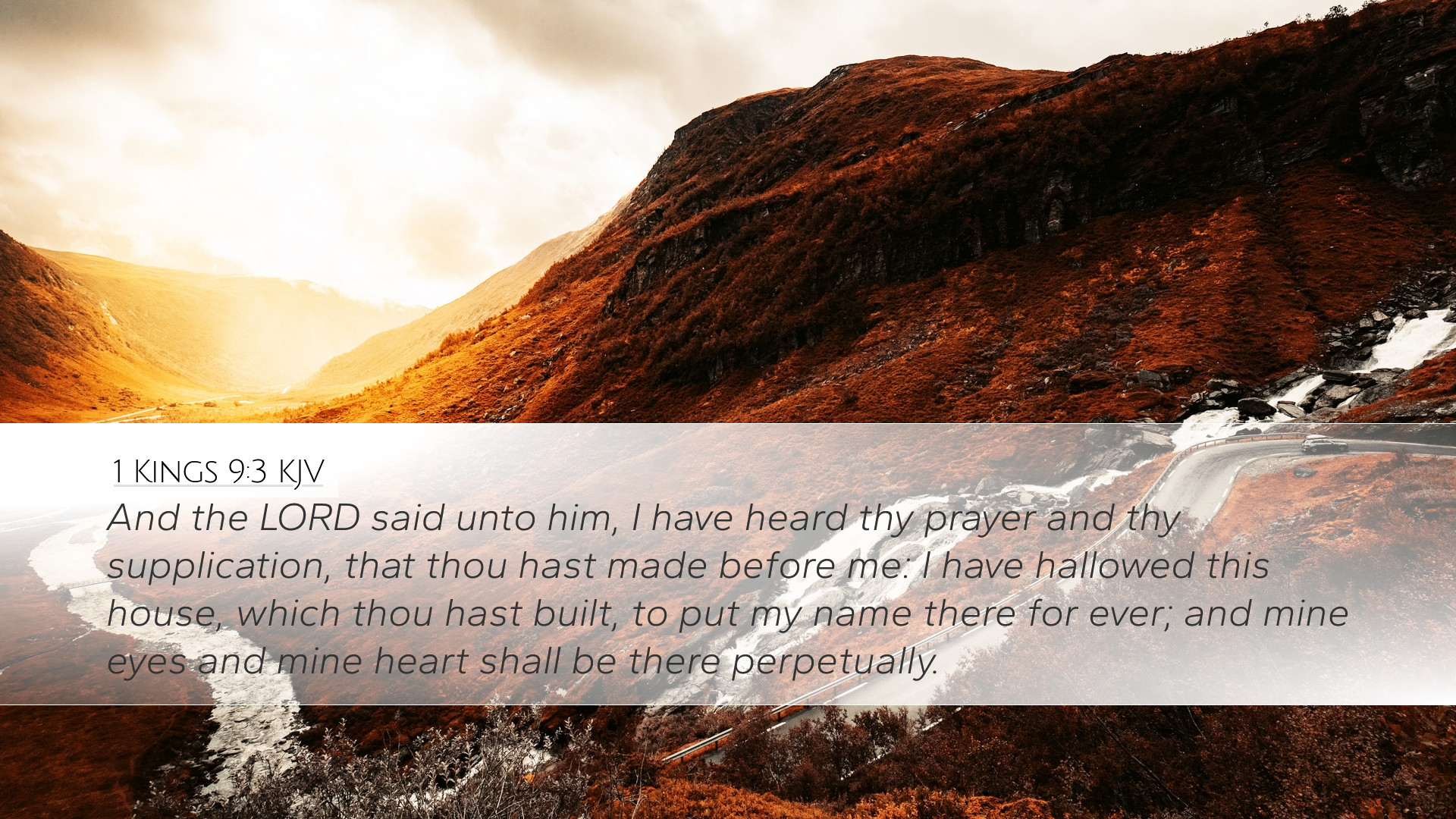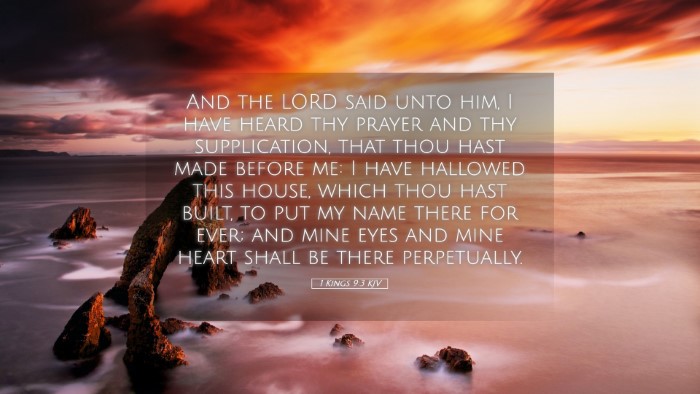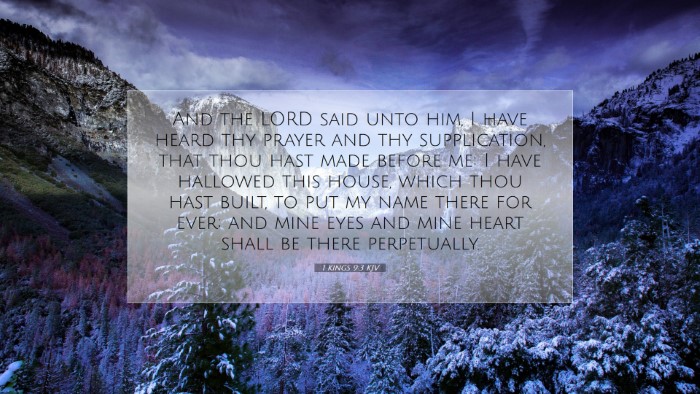Commentary on 1 Kings 9:3
Verse Reference: 1 Kings 9:3 - "And the LORD said unto him, I have heard thy prayer and thy supplication, that thou hast made before me: I have hallowed this house, which thou hast built, to put my name there for ever; and mine eyes and mine heart shall be there perpetually."
Introduction
This verse stands as a pivotal moment in the narrative of Solomon's reign, marking Divine approval of the Temple built in Jerusalem. It encapsulates the fulfillment of God's promise and the significance of the Temple as a dwelling place for His name.
Contextual Background
The chapter follows Solomon's completion of the Temple, a monumental task reflecting both his dedication and the historical importance of the structure. This moment emphasizes the connection between Israel and God as they establish a central place of worship. Matthew Henry highlights that this was not merely a location but a divine appointment—a symbol of God's presence among His people.
Divine Assurance
1. God Acknowledges Solomon's Prayer
God's response to Solomon's prayer illustrates the intimate relationship that exists between the Divine and human realms. Albert Barnes elucidates that this acknowledgment is indicative of God's attentiveness to prayer. The supplication Solomon made prior to this moment demonstrated sincerity and a deep sense of responsibility regarding the Temple's purpose.
2. The Sanctity of the Temple
God's declaration of having "hallowed" the house points to the Temple's sanctified status. Adam Clarke explains that this term underscores God's choice to set apart the Temple as a sacred site, where His presence would reside. This assertion affirms the Temple's role in Israel's spiritual life, as a place where worship, prayer, and sacrifice would be offered in alignment with divine guidance.
Theological Implications
- The Name of the Lord: The phrase "to put my name there for ever" reaffirms God's promise to maintain His presence in Israel. This introduces the concept of God's name as intimately linked with His people.
- Divine Eyes and Heart: The assertion that "mine eyes and mine heart shall be there perpetually" reflects God's continuous concern and oversight over the Temple and its activities. This signifies that worship within this sacred space is not merely ritualistic but involves a genuine relationship with God.
Lessons for Today
The truths embedded in this verse are as pertinent today as they were in ancient times. For pastors and theologians, this passage reinforces the importance of seeking God’s approval in church building and ministry. It serves as a reminder that any spiritual endeavor must be undergirded by prayer and supplication. The sanctity attributed to the Temple encourages believers to uphold holiness in their worship practices.
Moreover, the commitment of God to His people suggests the endurance of His presence in our lives today. The notion that His "eyes and heart" are attentive carries with it a profound comfort and accountability. As students of theology contemplate this, they are invited into community practices that honor the sacredness of worship and the spaces designated for it.
Conclusion
1 Kings 9:3 encapsulates a moment of divine affirmation of Solomon's efforts in constructing the Temple. It is rich with theological implications about God's presence, the significance of sacred spaces, and the enduring relationship between God and His people. For modern readers—be they pastors, theologians, or laypersons—this verse offers a reminder of the importance of dedicating our endeavors to God, ensuring that our lives and ministries reflect His honor and glory.


